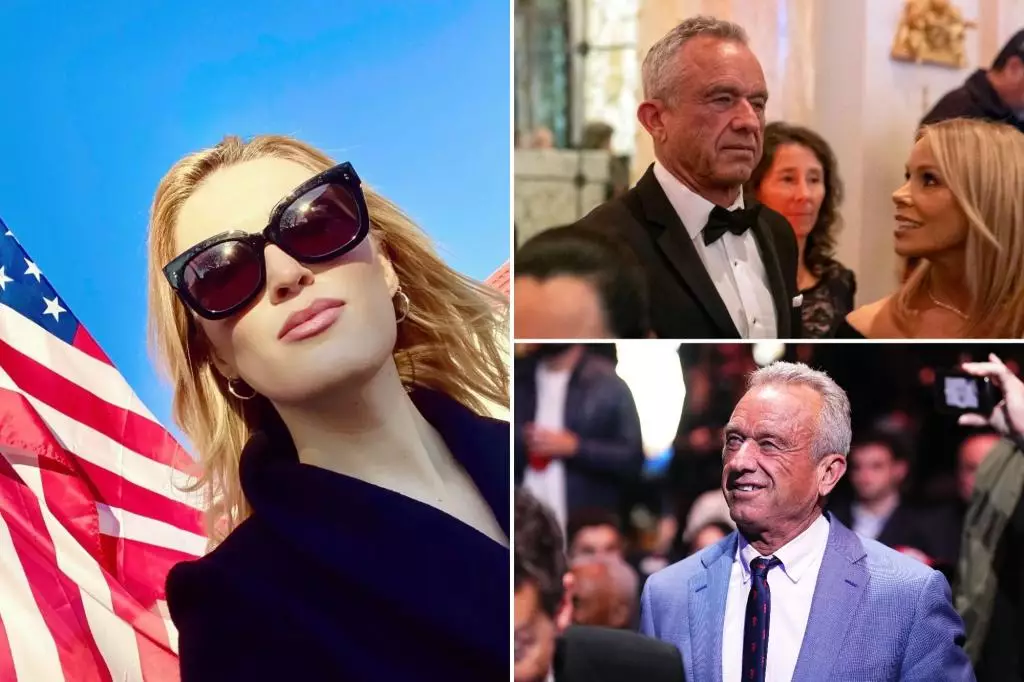Los Angeles, often a backdrop for shifting allegiances and dramatic reboots, mirrors the sentiments of its famous residents—an ephemeral city where glamour and controversy intertwine. Notably, figures from the signifier of art and intellect, such as Fran Lebowitz, have colorfully captured the essence of this sprawling cultural landscape. For many, including prolific writers like Olivia Nuzzi, LA serves as both an escape and a stage for personal reinvention, especially when faced with public scrutiny. This article examines the complexities surrounding recent public figures entangled in the web of fame, love, and scandal, primarily revolving around Nuzzi and Robert F. Kennedy Jr.
Olivia Nuzzi, a once-loyal contributor to New York Magazine, finds herself at a crossroads following a high-profile scandal connected to political figure Robert F. Kennedy Jr. The resonance of her personal trials—culminating in her alleged affair with Kennedy while navigating her breakup with journalist Ryan Lizza—offers a rich canvas for dissecting the interplay between personal life and public image in a city characterized by its celebrity culture. After parting ways with the publication where she showcased her talents for nearly eight years, Nuzzi reappears in the LA social scene, prompting speculations about her future in journalism and her attempts at self-reinvention.
What stands out in her story is not the moderation of her circumstances but rather how public figures often wrestle with their narratives. The alleged affair with Kennedy and the ensuing sexting scandal highlights a conundrum that haunts many personalities in the limelight: the constant struggle between achieving professional credibility and bearing the burdens of personal controversy. For Nuzzi, the move to LA appears to be a calculated decision—an opportunity to recast her narrative amid the headlines echoing her name.
Simultaneously, Robert F. Kennedy Jr. navigates his own tumultuous waters amid his public engagements and the rumors surrounding his relationship with Nuzzi. As Kennedy distances himself from his previous political pursuits for a fresh identity, being seen in the company of controversial figures like Donald Trump not only complicates his public persona but also questions his moral compass. His attendance at Trump’s events and paradoxical behavior—such as indulging in McDonald’s fare—challenge the authenticity of his advocacy for health reforms. The collision of his personal and public identities mirrors the larger trend in American politics, where one’s beliefs often clash with actions, leading to internal and external discord.
Kennedy’s relationships, particularly with women who come from either a media-savvy or politically charged background, can be interpreted as a search for legitimacy in an increasingly scrutinized world. The implications of these connections beg the question of whether narrative control is even possible in an age defined by instant communication and overwhelming public judgment.
Amid these intricate dynamics, Los Angeles serves as a vital context for themes of rebirth and personal transformation. It provides a sanctuary for individuals seeking new beginnings far removed from the burdens of their pasts. Both Nuzzi and Kennedy reflect this characteristic: she attempts to shed her former image post-scandal, while he seeks a fresh start tangling with a political legacy laden with expectations. Here lies the allure of celebrity culture—how individuals continually mold their identities amid the incompatible currents of reputation and reinvention.
Interestingly, the nexus of connections in LA—where creative minds congregate—fosters an environment of adaptations. Cooperation among artists, filmmakers, and writers is apparent in events such as a recent gathering celebrating the team behind “The Apprentice.” These intersections symbolize a unique aspect of LA: a space where reinvention meets collaboration, providing fertile ground for narratives to evolve.
In the final analysis, the Los Angeles landscape serves as an emblem of complexity, not just for the individuals navigating its glamour but also for the societal values those stars represent. The dilemmas faced by public figures like Nuzzi and Kennedy encapsulate the broader themes of identity, morality, and public perception, swirling in a city renowned for its contradictions. Thus, as the chapters unfold, it remains to be seen how these narratives will shape the next act in LA’s ongoing drama—one that is both sobering and sensational. In a realm where the stakes are high, individuals continuously craft their identities against the pressures of the public eye, rendering their quest for authenticity a poignant commentary on modern fame.

Leave a Reply